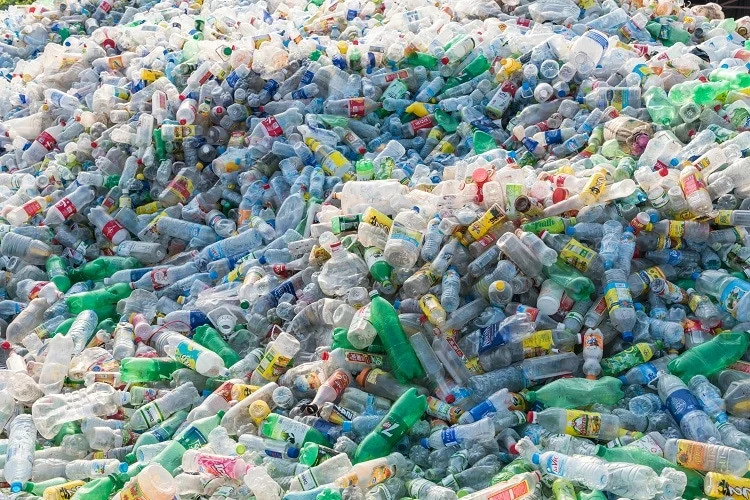BUSINESS &ECOMONY

FROM WASTE TO WEALTH: HOW NIGERIANS ARE MAKING MILLIONS FROM DISCARDED PLASTIC
If you’ve ever driven through Lagos or Ogun, you’ve probably seen them — people with sacks slung over their shoulders, picking up used plastic bottles from roadsides, markets, or drains. Or maybe you’ve noticed large bags of empty water and soda bottles stacked beside shops, waiting to be hauled off.
It might look like mere clutter, but this scene is actually part of a growing money-making machine. In fact, thousands of Nigerians are quietly turning plastic waste into a profitable business, earning millions by collecting, sorting, and selling discarded bottles.
How collecting trash turns to cash
Meet Ademolu Elijah, a waste collector and supplier based in Ijebu Ode. Each week, he supplies around three tonnes of clean PET bottles (the clear plastic used for water and soda) to recycling companies. At prices between N500 and N600 per kilogram, that adds up to about N1.5 million to N1.8 million every week — all from waste most people toss aside without a second thought.
The business works through a simple but layered chain. It starts with street scavengers who pick up bottles from roadsides or dumps and sell them for about N250 per kg. Middlemen then buy and sort these bottles, pushing prices to N400 or more, before selling in bulk to suppliers like Elijah, who deliver directly to recycling plants for up to N600 per kg.
Beyond PET bottles, Elijah also collects other plastics like HDPE (found in detergent and oil containers) and PP (used for bottle caps and takeaway packs). Though these fetch less, they still add steady income. In total, Elijah moves five to seven tonnes of plastic waste weekly, keeping about 30% profit after paying for transport and labour.
Why others are jumping in
In Lagos’ Ikorodu area, Samuel Udom started supplying PET bottles in 2018. Back then, he was moving up to 16 tonnes a week. But today, he’s down to two or three tonnes, thanks to more people joining the business and fewer people buying bottled drinks due to higher costs.
“Transport is another big challenge,” Udom explained. Moving a tonne of plastic can cost over N100,000, especially if you don’t have your own truck. That’s why he eventually bought a truck to cut costs and stay profitable.
What recycling companies want
At the end of the chain are companies like Stellar International and Lexsz Plastics, which buy PET bottles, clean and process them into raw materials for new products — from new bottles to pillow stuffing and T-shirts.
But they’re picky. “We only buy clean, clear PET bottles,” a staff at Stellar said. “We avoid oily or muddy bottles, and some coloured ones are completely rejected.” Prices also change often. Earlier this year, they were buying at N620 per kg, but now it’s around N520, tied to global market rates and the naira’s value.
The health and environmental side
While thousands make a living from plastic, Nigeria’s loose system of waste collection also comes with risks. Unlike many developed countries where recycling is structured through curbside pickup or bottle return schemes, Nigeria depends on informal collectors.
This exposes workers to cuts, infections, and long hours in unsanitary conditions. Public health experts also warn that plastics clog drains, worsen flooding, and break down into microplastics that contaminate food and water.
Dr. Doyin Odubanjo, a top public health specialist, explained: “Some plastics even release chemicals that may disrupt hormones or cause other long-term health problems.”
Looking ahead
Still, for many Nigerians, plastic is more than just pollution — it’s an opportunity. From street scavengers to bulk suppliers, the plastic waste trade is putting cash in pockets and helping keep cities cleaner.
But without better infrastructure, policies, and safer systems, these collectors will continue to bear the heavy cost of sustaining Nigeria’s recycling economy.
So the next time you see someone hauling a sack of plastic bottles, remember: they’re not just cleaning up the streets — they’re building a business from what the rest of us throw away
"This represents a significant development in our ongoing coverage of current events."— Editorial Board









